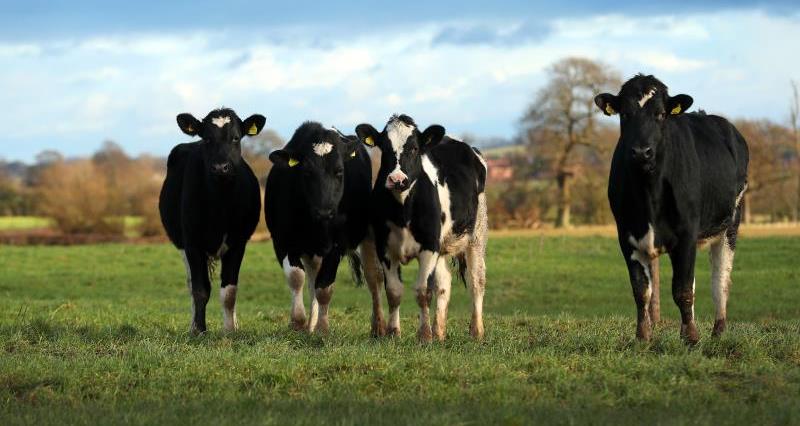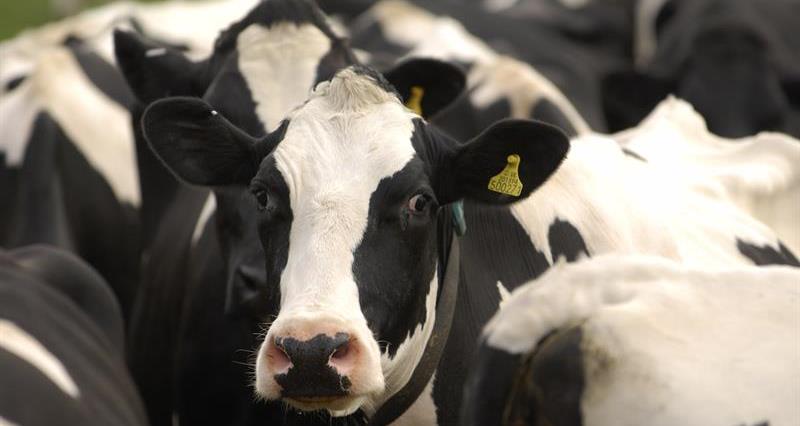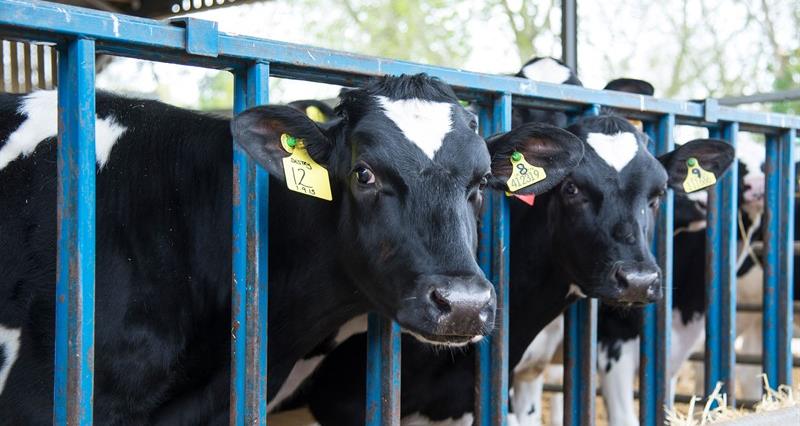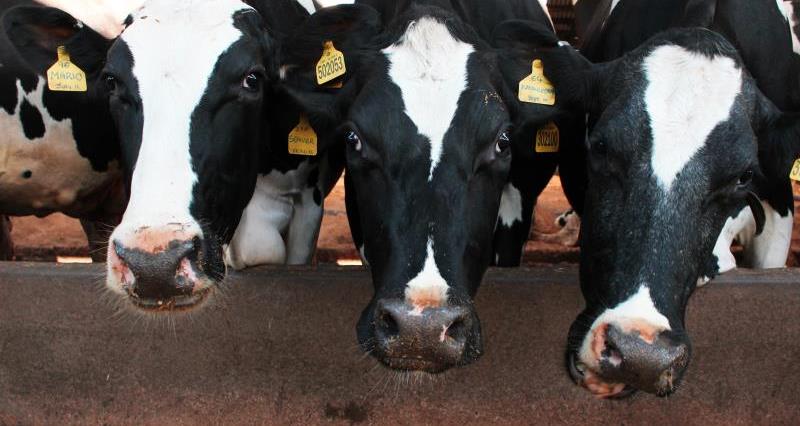The Fair Dealings Obligations (Milk) Regulations 2024 (FDOM24) came into force today (9 July). From this date, the new regulations will apply to all new contracts made for the purchase of milk from a producer.┬Ā
It is hoped that the new regulations will establish transparency and accountability across the dairy supply chain by stopping contract changes being imposed without agreement.
There will also be a system in place to enable farmers to verify the calculation of variable prices.┬Ā
The regulations also include an enforcement regime, which allow the Secretary of State to impose substantial financial penalties to entities who make any breaches.
There will be a transition period of 12 months for existing agreements. All such contracts will need to be compliant with the regulations by 9 July 2025.┬Ā
ŌĆ£Today marks a significant moment for dairy farmers across the UK as the Fair Dealing Obligations (Milk) Regulations 2024 come into force for all new dairy contracts.ŌĆØ
NFU Dairy Board chair Paul Tompkins
Regulation guidance can be found at
╗╩╝ę╗¬╚╦has long been campaigning for transparent, fair and functioning supply chains. Its five key points for contract reform focused around:
- Pricing mechanisms;
- Relationships and farmer representation;
- Exclusivity and volume management;
- Elimination of unilateral changes and one-sided contract terms, and;
- Consequences of breach
Take a look back at how the NFU has worked on creating fairer, transparent and more resilient supply chains: Dairy contract regulations ŌĆō how weŌĆÖre keeping dairy farmers at the forefront
A significant step in more than a decade of campaigning
NFU Dairy Board chair Paul Tompkins said the implementation of the new regulations marks a significant step in a long road of campaigning to improve fairness across the supply chain.
ŌĆ£Today marks a significant moment for dairy farmers across the UK as the Fair Dealing Obligations (Milk) Regulations 2024 come into force for all new dairy contracts,ŌĆØ he said.
ŌĆ£╗╩╝ę╗¬╚╦has long been campaigning for fairer, more transparent contracts to aid trust and collaboration across the supply chain and prevent some of the worse abuses of power which one-sided contract terms allowed.ŌĆØ
A level playing field for all parties
ŌĆ£From today any new contract offered to a producer must be compliant with the new regulations.
ŌĆ£This means, among other things, it must offer a clear, transparent price or pricing schedule, ŌĆśA & BŌĆÖ pricing under an exclusive contract is no longer allowed, it prevents unilateral changes to a contract if one party disagrees, farmer collaboration is encouraged to support effective negotiation and, importantly, there are now clear consequences should one party be found to be in breach.ŌĆØ
Paul emphasised the significance of the creation of a level playing field for both farmers and purchasers, where farmers can be sure they are being treated fairly by their buyers, while purchasers who are trying to do right by their suppliers are not undermined by the riskier actions of others, after years of uncertainty.
ŌĆ£Confidence in your dairy contract and confidence in those you are doing business with is vital when it comes to long-term business planning and certainty for the future,ŌĆØ he said.
ŌĆ£For a fully functioning supply chain we must also see the regulations pave the way for better farmer representation and cross industry collaboration. Risk must be shared across the supply chain, as should reward.ŌĆØ
Enforcement and action
Paul spoke of the importance of continued conversation with the new ASCA (Agricultural Supply Chain Adjudicator).
"We know the UK dairy sector is varied and contract regulation wonŌĆÖt be the solution to everything. However, over the next few months myself and my dairy board will be going out in all the regions to speak to members about what the regulations could mean for them and their businesses.
ŌĆ£We will also continue to work closely with the new ASCA and his office to help the industry adjust to the new regulations, while ensuring producers are confident when raising a genuine complaint with the ASCA office that it will lead to action.
ŌĆ£We must all work together to ensure that this fundamental piece of work delivers for our industry and for farmers across the UK.ŌĆØ
Dairy contract regulation ŌĆō the story so far
UK farming unions raise alarm over potential changes to new legislation
The UK farming unions wrote to Food Security Minister Daniel Zeichner to raise concerns over possible changes to the new dairy contracts legislation that would allow the milk buyer to discount certain litres of a farmŌĆÖs milk, even where a contract is exclusive.
Legislation comes into force
The Fair Dealing Obligations (Milk) Regulations 2024 (FDOM24) came into force in the UK on 9 July 2024. From this point they will apply to all new contracts made for the purchase of milk from a producer.┬Ā
See:
Legislation laid before parliament
The 'Fair Dealing Obligations (Milk) Regulations' are laid in parliament.
Dairy contract code
Defra and the devolved administrations develop the dairy contract code alongside industry.
Read: Dairy code announcement comes at ŌĆścritical timeŌĆÖ for producers
Government commits to code
Following feedback from the 2020 consultation which found that unfair practices, linked to buyers having the power to set and modify contract terms and pricing mechanisms without negotiation, ŌĆ£persistŌĆØ in the sector, creating uncertainty and ambiguity and ultimately instability across the supply chain, the government commits to develop a code.
Read: Dairy code announcement comes at ŌĆścritical timeŌĆÖ for producers
Consultation begins
Defra and the devolved administrations launch a consultation on a new, mandatory code for dairy contracts.
Agriculture Act becomes law
The Agriculture Act (2020) becomes law, giving the UK Government the power to regulate on contracts.
Report highlights imbalance of power
The Groceries Code Adjudicator report highlighted an imbalance of power in the dairy supply chain and the
UK Government recognised the need to legislate dairy contracts.
The new UK Agriculture Bill is developed to replace EU legislation which includes new powers to improve fairness in the supply chain.
NFU calls for greater GCA powers
In the wake of another dairy crisis, NFU calls for extending powers of the Groceries Code Adjudicator to improve fairness in the supply chain.
SOS Dairy
The SOS Dairy campaign sees farmer blockades of supermarkets and widespread protests about milk prices.
The voluntary code of practice for dairy contracts is also developed by farming unions and DairyUK.
Campaign begins
╗╩╝ę╗¬╚╦launches a campaign to improve dairy contracts in the wake of Dairy Farmers of Britain collapse.
Template dairy contract
╗╩╝ę╗¬╚╦launches a new template dairy contract aimed at improving contract terms for farmers.
More from ╗╩╝ę╗¬╚╦:


Dairy contract regulations ŌĆō how we're keeping dairy farmers at the forefront


